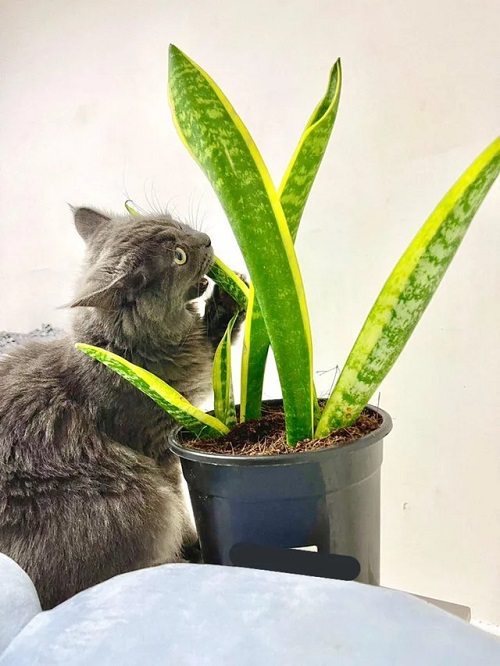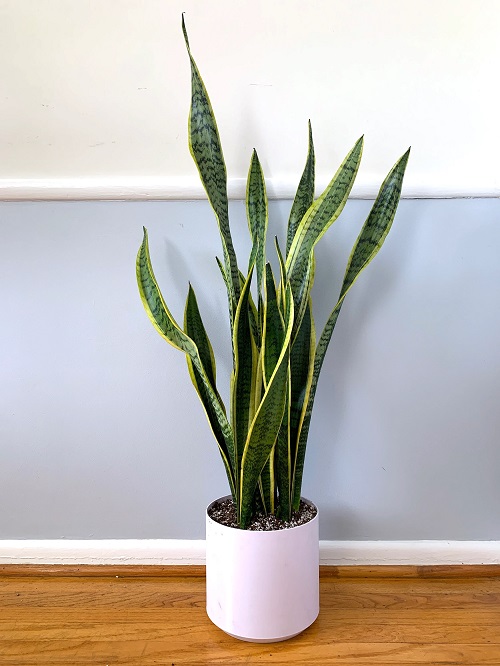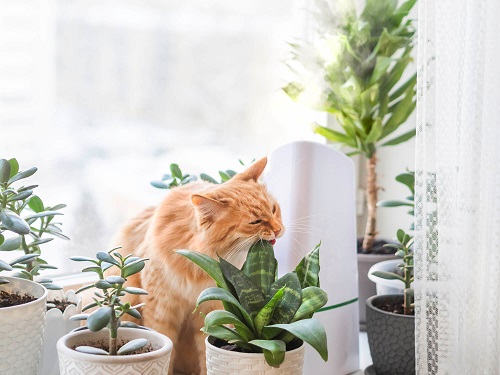Are Snake Plants Toxic to Cats? Read this article and get a detailed answer to this question once and for all!

The question of toxicity in plants always bugs the minds of every pet keeper. If you are a cat parent, you must be wondering Are Snake Plants Toxic to Cats or not. Well, it’s time to find out the answer!
Here are DIY Outdoor Cat House Ideas For Winters
What Are Snake Plants?
Snake plants, or mother-in-law’s tongue, are easy-to-care-for houseplants that are known for their long, upright leaves that grow in a rosette pattern. The leaves are usually dark green with a pointed appearance.
These plants are great for indoors, as they can tolerate low light and irregular watering. They are also known for their air-purifying properties, as they can remove toxins like benzene, formaldehyde, and trichloroethylene from the air.
Here are the Best Cat Garden Plants
Are Snake Plants Toxic to Cats?
So, Are Snake Plants Toxic to Cats? These specimens are indeed toxic to cats because the leaves of the snake plant contain saponins (a toxic compound), which can cause various problems in your cat.
Experts recommend that it should be avoided when it comes to cat owners. As per the American Society for the Prevention of Cruelty to Animals (ASPCA), the snake plant falls under the list of toxic plants for cats and other pets.
Check out these Sure Shot Ways How to Keep Cats Out of the Garden
Why Should Your Cats Be Away from Snake Plants?
The indigestion of snake plants can cause gastrointestinal upset, vomiting, and diarrhea in cats if they happen to consume this plant.
In addition to this, mouth irritation, excessive drooling, and difficulty swallowing can be caused in your pet if it swallows this plant. If you are a cat parent, it is important to keep it out of reach of your pet.
You can place the plant on a high shelf or any space in the room that your cat cannot access.
Learn how to keep cats away from houseplants here
Treatment of Snake Plant Poisoning in Cats
If you observe symptoms like vomiting, diarrhea, Mouth irritation, excessive drooling, and difficulty swallowing in your pet, this might be an indication that your cat has ingested any part of a snake plant; it is important to contact your veterinarian right away.
- Rinse the pet’s mouth and throat thoroughly with lukewarm water.
- Make your cat drink a good amount of water and let it rest.
- Take it to your vet immediately the moment you notice these signs.
Are Air Plants Toxic to Cats and Dogs? Find out here
Are Snake Plants Toxic to Cats? Conclusion
Ensure that snake plants are out of reach from your pet, as these could be toxic for cats if ingested.
For example, you could put it on a high shelf or a plant stand. You can also place a barrier around the plant to prevent your pet from getting too close.
If these steps don’t work, you can use natural deterrents that can be sprayed on or around the plant, such as diluted vinegar or citrus oil, which can help discourage your pet from approaching it.
Is majesty palm toxic to cats? Find out here
Houseplants that Are Safe for Cats and Are Not Toxic
Here are some of the safe plant options that you can grow without worrying about your cat.
- Venus Flytrap
- Bamboo Palm
- Lavender
- Catmint
- African Violet
- Polka Dot Plant
- Watermelon Peperomia
- Ferns
- Rattlesnake Plant
- Calathea



